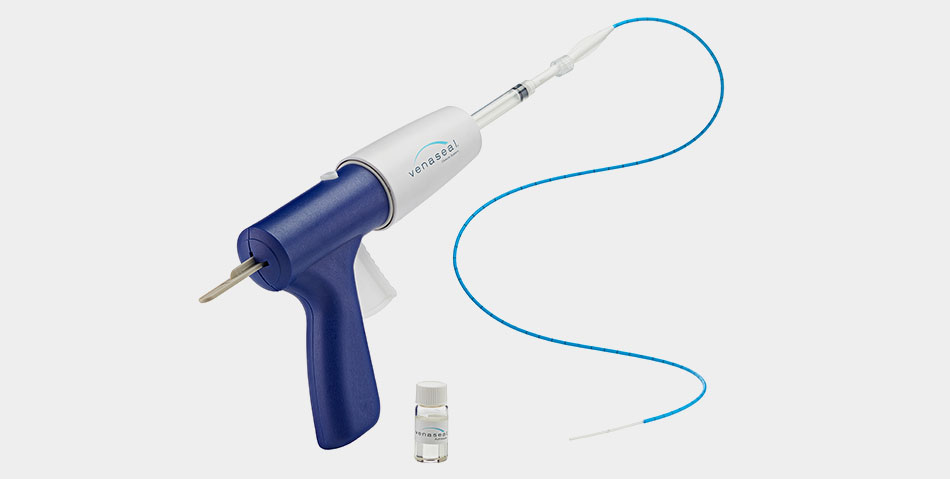VenaSeal™Closure at Nuffield Health Cambridge Hospital
The Venaseal™ or “superglue” treatment is a new and innovative way of closing the main vein in the leg that causes varicose veins.
Who is this treatment suitable for?
The Venaseal™ or “superglue” treatment is a new way of closing the main vein in the leg that causes varicose veins. The Venaseal™ treatment is usually performed using only one small incision (2-3mm) per vein treated, and there is no need for additional injections of local anaesthetic around the vein – unlike endovenous laser ablation or radiofrequency ablation.
What does the treatment involve?
You will need an initial consultation with our Vascular Consultant, Mr Gohel.
He will scan your veins to determine the severity; following this he will discuss the best treatment pathway with you. If VenaSeal™ could be a good treatment option, Mr Gohel will talk you through the next steps.
The procedure

- You may feel some minor pain or stinging as a local anaesthetic injection is used to numb the site where the doctor will access your vein.
- Once the area is numb, your consultant will insert the catheter (i.e., a small hollow tube) into your leg. You may feel some pressure from the placement of the catheter.
- The catheter will be placed in specific areas along the diseased vein to deliver small amounts of the medical adhesive. You may feel some mild sensation of pulling or tugging. Ultrasound will be used during the procedure to guide and position the catheter.
- After treatment, the catheter is removed and a small dressing will be placed over the puncture site.
How long is the recovery process?
The VenaSeal™ closure system reduces discomfort and recovery time and is designed to allow rapid return to normal activities.
Many patients return to normal activity immediately after the procedure. Mr Gohel will help you determine when you can return to normal activity.
Further information:
Understanding varicose veins
Why choose VenaSeal™?
Specific risks and complications of this treatment
The VenaSeal™ closure system is minimally invasive and catheter-based. As such, it may involve the following risks. Your Consultant can help you understand these risks.
- Deep vein thrombosis (i.e., blood clot in the deep vein system) or Pulmonary embolism (i.e., blockage of an artery in the lungs) – both are rare (risk <1%)
- Recurrence – as with all varicose vein treatments, there is a chance that the treated vein may not close fully (3-5%) or that new veins may form after treatment
- Allergic reaction to the VenaSeal™ adhesive (very rare)
- Bleeding or bruising (from the access site)
- Some patients notice some redness over the treated vein, which usually resolves within a week
Are there any alternative procedures?
Endovenous laser ablation and Radiofrequency ablation are other procedures used to treat varicose veins.
The advantage of the VenaSeal™ closure system procedure is that is uses an adhesive to close the superficial vein. Thermal energy procedures use heat to close the vein. The intense heat requires a large volume of numbing medicine, which is injected through many needle sticks. The injections may cause pain and bruising after the procedure.
4 Trumpington Road, Cambridge, CB2 8AF
Ways to pay
Nuffield Health promise
Our prices are all-inclusive. We will equal any comparable price. There are no time limits on your aftercare.
Paying for yourself
There are no hidden costs in our treatment prices. The price you see is the price you pay.
Find out morePersonal medical loan
Spread the cost of your treatment with a 6, 10 or 12 month 0% personal medical loan.
Find out moreMedical insurance
We work with you and your insurance provider to get you the treatment you need quickly
Find out more